Making informed decisions about camps for your child
You might have icicles hanging from your windows at home, but it’s the best time of year to sign your child up for sailing camp!
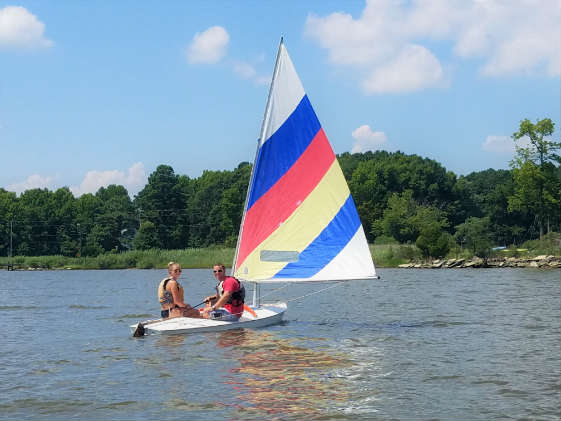
Decisions, decisions
Maryland, Virginia, and Washington, DC, are home to many quality summer kids’ programs, and plenty of them offer sailing opportunities. If they’re on the water this summer, kids will hone their sailing skills, build confidence, learn teamwork, and create lasting memories. Whether you want your child to acquire some seamanship skills, experience new challenges, or simply soak up some outdoor fun, summer sailing can’t be beat.
When deciding among a myriad of options, you must first ask yourself which type of program suits your young sailor best. Is he or she ready for a sailing-intensive camp, or would a program, such as a YMCA camp program with other activities in the mix, be best? Half or full day? Overnight or day camp? Is your child competitive and therefore suited to a racing program, or would a more casual all-around sailing and watersports program be better suited for his or her needs?
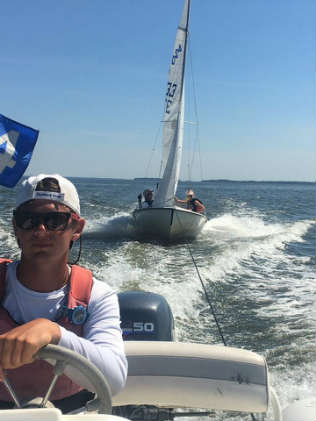
If your child is a beginner, there are many options for him or her; the same goes for experienced sailors and racers. In recent years, sailing-specific programs have widened their offerings to include other boating experiences, such as standup paddleboarding or windsurfing. Others seek to introduce the kids to a wide variety of hulls or teach them about nature and ecology or science, technology, engineering, and math (STEM).
Ask your child if he wants a day camp or overnight experience, and think about how you’ll arrange transportation to and from the site. Talking to the director and to former campers and parents and visiting the facility are good ways to help you decide if a particular camp is right for your youngster.
If you’re new to this process, you should know that many yacht clubs (such as Hampton Yacht Club and Eastport Yacht Club) open their kids’ sailing camps to the public, and they’re quite popular and reputable programs. Community sailing programs, such as DC Sail or Youth Sailing Virginia, are very welcoming as well as safety-minded. All reputable programs have well-qualified and certified instructors (see “questions to ask”).
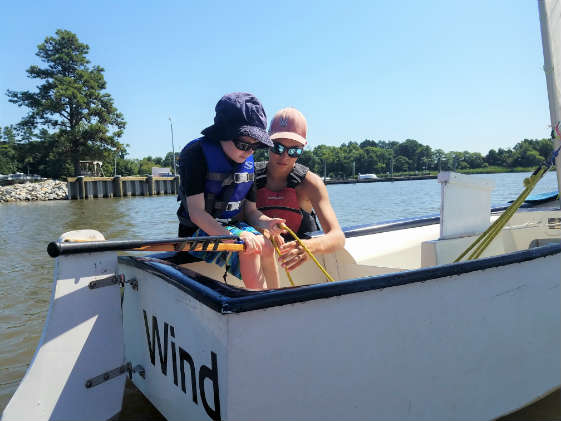
Find the right program
To find a few camps that suit your needs, search the ads on these pages and on the websites below.
Chesapeake Bay Yacht Racing Association Juniors
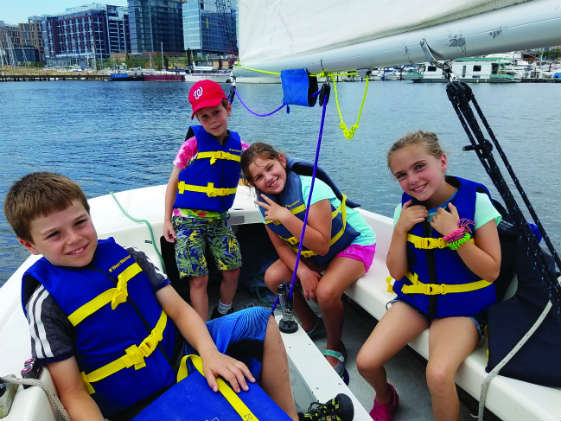
Questions to ask
Once you have found a few schools that are convenient to you and seem to suit your child’s sailing skills and preferences, peruse the schools’ websites and call to ask any unanswered questions. Here are top questions to ask:
Are your instructors certified?
Among certifications to look out for are: American Sailing Association (ASA) or U.S. Sailing (both are quality training organizations), CPR, and first-aid.
What kind of boat will my child be sailing?
Most kids’ programs are run on dinghies (lightweight boats, generally 10-14 feet long, and tippy); others are run on keelboats (heavier, more in the 20- to 25-foot range, less tippy). You might want to ask how old the boats are and how they are maintained. Some programs, such as the Eastport Yacht Club program, have windsurf boards, standup paddleboards, and kayaks for students to try.
Is your program’s emphasis on racing skills or recreation?
If your child is competitive, he or she might thrive in a racing program. If not, it might be better to find a program focused on sailing fun among new camp friends.
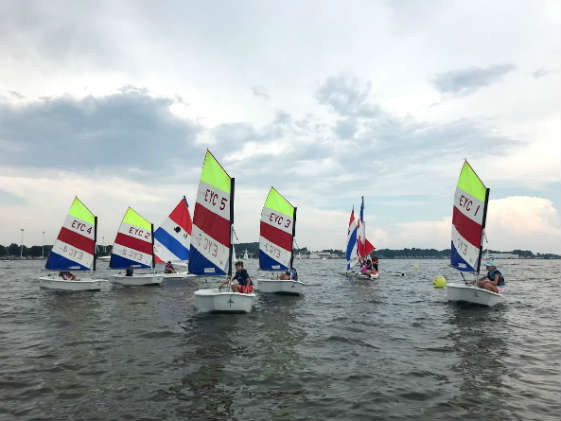
What’s your student to instructor ratio?
This is very important, as your six- or eight-year-old might need a bit more guidance than the older or more experienced kids in the program.
What kind of safety instruction do you provide?
The most popular kids programs are also the most safety-minded. Young sailors in the programs that have earned good certifications will never go on a boat without detailed safety lessons about how to safely secure the lifejacket, the danger zones on the boat (the boom!), how to turn the boat around, and what it feels like to heel over in the wind.
What is the cost?
These days, most schools and camps have pricing listed on their websites. If not, a quick phone call or email should be all you need to find the price list and schedules.
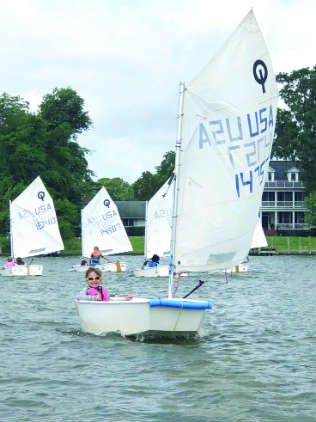
Are there motorized chase/coach boats?
Even when an instructor is on the boat with the students, there should be a coach boat nearby in case of emergency—and non-emergency needs such as towing the boats back to shore on time if the wind dies down. Ask what kind of chase or coach boats the school has and how they are maintained.
Are lifejackets provided?
U.S. Coast Guard-approved lifejackets (also called personal floatation devices or PFD) should be provided. It is nice to have a PFD that fits well and feels like your own, so if your child already has one, bring it, or if your child wants his/her own because of sizing concerns, you may purchase one at a chandlery such as Fawcett Boat Supplies or West Marine.
Do you have programs for teens aged 14-16?
If your child is at this age, you know it can be challenging to find “kids” programs that don’t feel too young. Click here for ideas for teens.
With so many flavors of sailing, there’s surely something to fit every family’s needs. Take advantage of the wide variety of opportunities. Encourage your child to try something new, be it racing, sleep-away camp, or a multi-day kayak trip. Summer is not that far away, and it’s a great season for expanding horizons.




